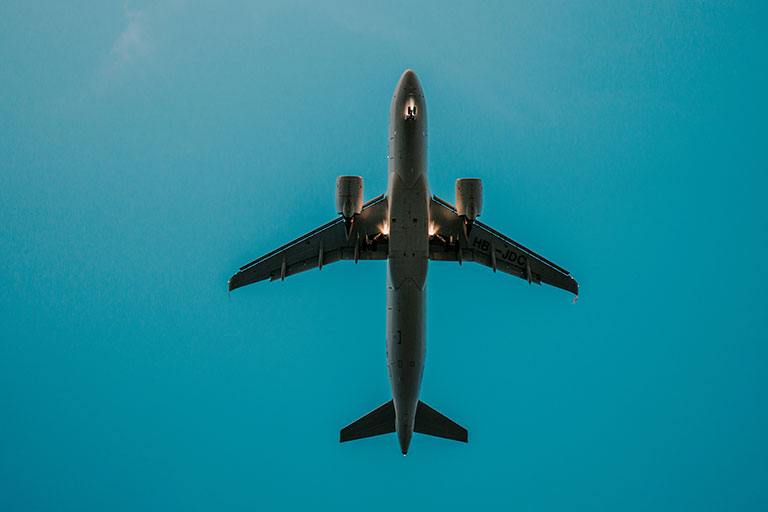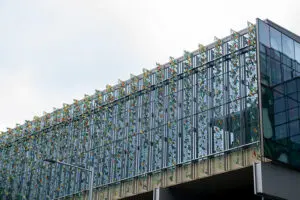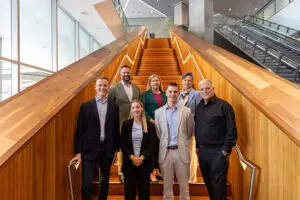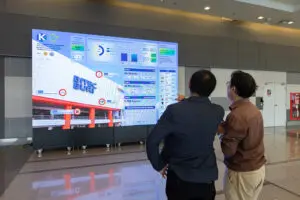Sustainable aviation fuel is made from bio waste sources such as used cooking oil and municipal waste in addition to non-food crops. It is considered a key tool for reducing emissions of air and freight travel – and, therefore, will be a key tool for decarbonising the business events industry.
The International Air Transport Association (IATA) believes SAF will account for 65 per cent of the emissions reductions required by the global aviation industry to reach net zero by 2050.
SAF is blended with traditional jet fuel and can be used in aircraft today without any modification of the aircraft.
Singapore Airlines has announced it will receive 1,000 tonnes of sustainable aviation fuel produced at a refinery in Singapore from Neste this calendar year.
The Singapore Airlines order makes it the first carrier to receive Singapore-produced SAF to the country’s Changi Airport.
“This supply of locally produced SAF to Changi Airport is a milestone in our journey of supporting the aviation industry and governments in the region to achieve their emissions reduction goals,” said Neste’s vice president of renewable aviation, Alexander Kueper.
“Singapore is a leading aviation hub in the Asia Pacific region and this delivery of SAF, as well as the recently announced national SAF target, will hopefully encourage the wider adoption of SAF across the broader Asia Pacific region.
“We are looking forward to expanding our cooperation with Singapore Airlines as well as supplying visiting carriers at Changi Airport,” said Kueper.
In February this year, the Civil Aviation Authority of Singapore announced a mandate for the use of SAF for all flights departing Changi Airport from 2026. To start with, flights will need to be operating with at least one per cent SAF, with the intention of increasing the mandatory amount to three to five per cent by 2030.
In Europe, a two per cent green fuel mandate will be in place for all flights departing the continent from next year.
There is currently no locally produced SAF in Australia, but there are plans and funding to change that.
Qantas and Airbus have already started a $290 million fund to incentivise the start-up of a local SAF industry in Australia.
A SAF refinery is planned in Queensland with support from the state government and the Qantas-Airbus fund.
Meanwhile, University of South Australia aviation professor, Shane Zhang, has recently received a $230,000 grant from the National Foundation for Australia-China Relations to work with colleagues in China to establish SAF industries in both countries.
Zhang’s mission is supported by various measures in the latest federal budget, including a $1.7 billion commitment over the next decade specifically for renewable fuels for aviation.
“Sustainable aviation fuels can potentially cut carbon emissions by up to 80 per cent and are essential if we are to achieve net-zero greenhouse gas emissions in Australia [in] 2050,” said Zhang.
“There is a lot of potential to produce sustainable aviation fuels in Australia and China, as both countries have large quantities of bio feedstock and the market is untapped.
“Australia is among a handful of countries globally to support the transition to SAFs, but the financial commitment to develop a local industry does not extend to a mandate at this stage.”
While there is not currently enough SAF being produced around the world to meet the demand of the commercial aviation industry, Zhang explains there are challenges to starting up SAF production.
“Unlike ground transportation, there are limited alternative fuel options for the aviation sector.
“Sustainable fuels are one of them, but they are up to five times more expensive than traditional fuel and airlines are reluctant to invest in them until they become cheaper and more readily available.
“Likewise, biotechnology companies need a guaranteed market from airlines before they commit to developing SAFs, so the hesitation runs both ways.”
However, Zhang believes the elements required for success already exist.
“The technology is ready and mature, and the Federal Government has sent a clear signal about its support for greener aviation fuels. We just need to overcome the challenges and find the right path.”




















